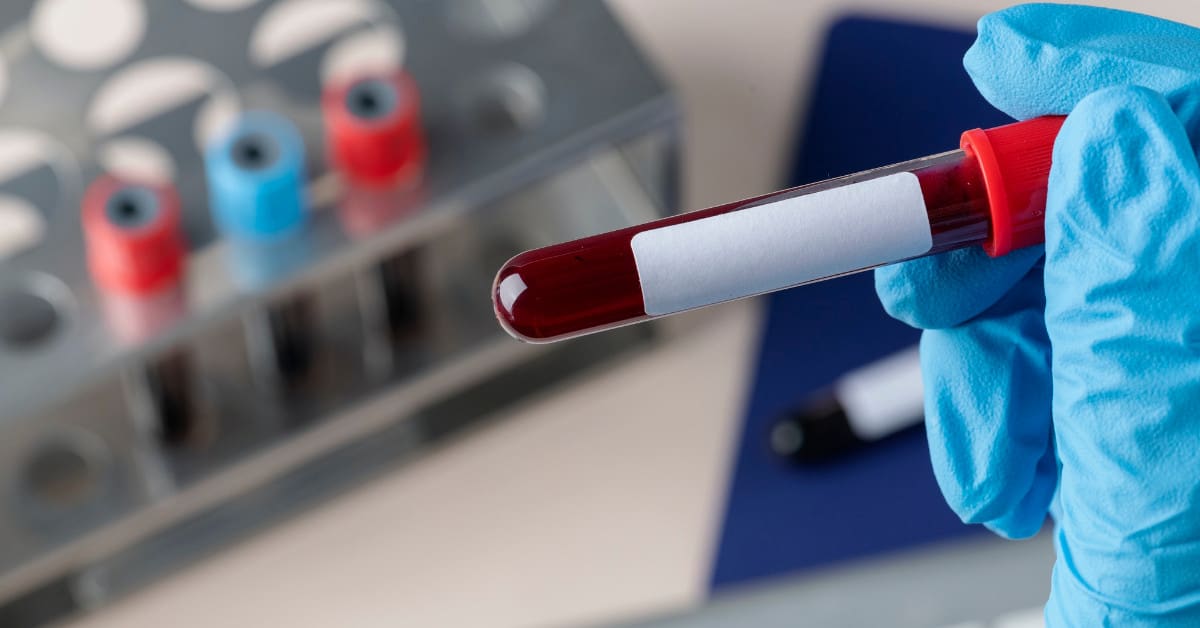It is one of the most performed blood tests in medical practice. It is an exam that provides the health provider with essential information about the general state of health of a person.
This study is useful for diagnosing and monitoring many types of diseases and health problems in a simple way.
What is a CBC blood test?
The CBC test is a blood test that provides important information regarding blood cells. The CBC test counts blood cells, that is, red blood cells, white blood cells, and also platelets.
What is the meaning of a CBC blood test?
CBC stands for “complete blood count” because a CBC counts and measures blood cells.
When is a CBC done?
Many doctors consider it important to have an annual CBC as part of a regular health exam.
CBCs are useful for:
- Evaluate the general state of health.
- Detect problems or abnormalities in the blood.
- Diagnose and control infections and other various disorders.
- Rule out suspected health problems on physical exam.
- Your doctor may also order a CBC when you have symptoms such as:
- Fever, nausea, and vomiting.
- Swelling and irritation in any part of the body.
- Pain in the joints.
- Unusual bleeding or bruising.
- Alterations associated with heart rate or blood pressure.
- Fatigue, weakness, or dizziness.
What does a CBC measure?
The main cells that are measured in the CBC test are:
- Red blood cells or erythrocytes (RBC). They are the red blood cells, they are responsible for transporting oxygen throughout the body. They also remove carbon dioxide produced in cells. A CBC measures two main components of red blood cells:
- Hemoglobin (Hb or HgB): protein in erythrocytes that carries oxygen.
- Hematocrit (Hct): is the percentage of erythrocytes in the blood. Too high a level may indicate that you are dehydrated or have some other condition.
When these values are low, it means that the red blood cells do not have the same capacity to transport oxygen or they are in less quantity. It is a sign of anemia.
- White blood cells (WBC). They are the cells that help the body fight dangerous microorganisms. Thanks to white blood cells, the human body can fight infections. A CBC measures how many white blood cells are in the body and also tests some types of them. An abnormal increase or decrease in its levels can indicate an inflammatory process, cancer, and infections. Of course, only a trained physician can interpret any of these results.
- Platelets. They are responsible for causing the blood to clot after an injury occurs. Thanks to platelets, our body can control bleeding and prevent all our blood from being lost through small wounds. When a cut stops bleeding, it is because there are platelets doing their job. However, when irregular bruising and bleeding appear, platelets may be found in low amounts in the blood. When platelets are low, excessive bleeding can occur and indicate a serious underlying infection.
- Mean corpuscular volume (MCV). This is the size of the red blood cells. When this value is higher than usual, it means that the red blood cells are larger than usual. This could mean that you have low folates or vitamin B12 in your blood. On the contrary, too low a MCV value indicates that the red blood cells are small and may represent a type of anemia.
Other components of the CBC:
- Differential count of leukocytes.
- Mean corpuscular hemoglobin (MCH).
- Mean concentration of corpuscuar hemoglobin (MCHC).
- Red blood cell distribution width (RDW).
- Mean platelet volume (MPV).
How is a CBC done?
This is a simple test that only takes a few minutes. It consists of extracting a small amount of blood from one of your veins in your arm to be sent to the laboratory.
You do not need any previous preparation to take this test. If it is the only blood test that you will have, you can eat and drink as you normally would. You can also return to your daily activities immediately without problems.
However, the doctor may order other tests or require the result for something specific. For this reason, your doctor may tell you not to eat or drink anything for a few hours before the test. Always in this case follow the specific instructions of your health provider.
What are the risks of having a CBC?
Any medical procedure, even minimally invasive, has some risk and CBC tests are no exception. However, the risks of a blood test are generally minimal.
You may experience some mild pain over the place where the blood is drawn. Also, on occasion, a bruise may form at the site. These consequences disappear quickly and do not need treatment.
In rarer cases, the site where the needle was inserted may become infected, but this is extremely rare.
What are the normal ranges for a complete blood count test?
- White blood cells (WBC). The normal range varies slightly between laboratories, however, the usual normal range is between 4,300 to 10,800 cells per cubic millimeter (cmm). It can also be expressed in international units: 4.3 to 10.8 x 109 cells per liter of blood.
- Red blood cells (RBC). The normal number of red blood cells in blood volume ranges from 4.2 to 5.9 million cells per cmm.
- Hematocrit (Hct). The percentage of total blood varies between 45% to 52% in men and between 37% to 48% in women.
- Hemoglobin (Hbg). It refers to the amount of hemoglobin molecule in the blood. The normal range varies according to whether you are a man or a woman:
– For men, the normal range is between 13.8 to 17.2 grams per deciliter (g / dL).
– For women, the normal range is 12.1 to 15.1 g / dL.
- The mean corpuscular volume (MCV). The normal range of MCV is 80 to 100 femtoliters (meaning a fraction of a millionth of a liter).
- Mean corpuscular hemoglobin (MCH). It ranges from 27 to 32 picograms (it is governed by a very small fraction of a gram).
- Red blood cell distribution width (RDW). It generally ranges from 11 to 15.
- The mean corpuscular hemoglobin concentration (MCHC). This is the average concentration of hemoglobin in a volume of blood. The normal range is 32% to 36%.
- Platelet count. The normal number of platelets in a volume of blood ranges between 150,000 and 400,000 per microliter.
- Mean platelet volume (MPV). Its normal range is between 6 to 12 femtoliters.
How much does a CBC test cost?
The prices of this test vary depending on many factors. The CBC test can cost from $ 10. The price may vary according to where you take the test and whether or not you have insurance.
Conclusion
A CBC blood test is a very useful routine study to diagnose different types of health problems. Don’t worry if your doctor has told you to do this study. The CBC is a necessary study as part of a general health check-up.
References
Allan, G. M., & Young, J. (2017). Complete blood count for screening?. Canadian family physician Medecin de famille canadien, 63(10), 772.









